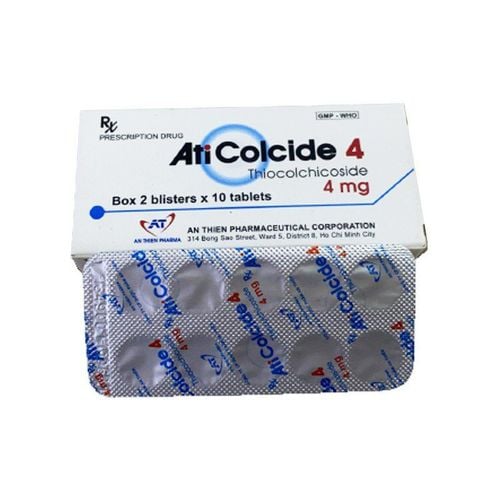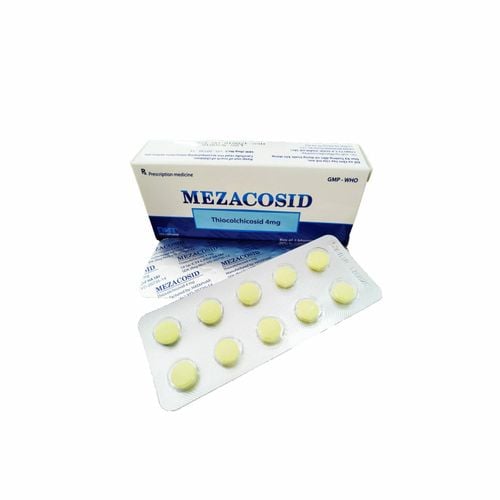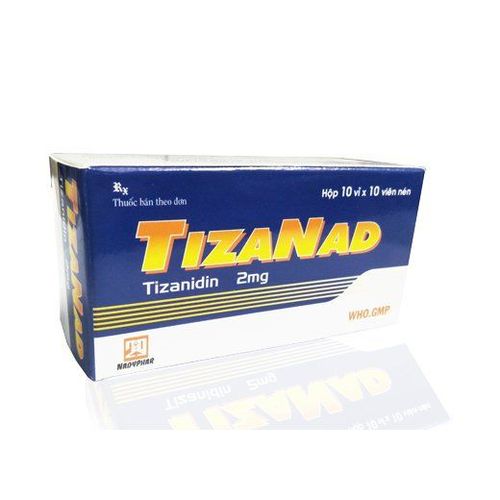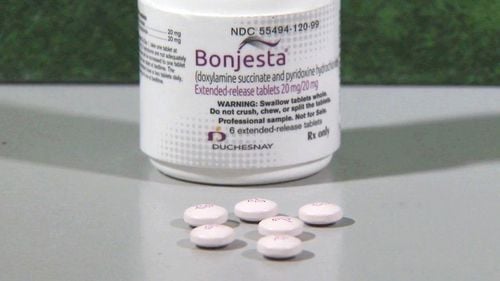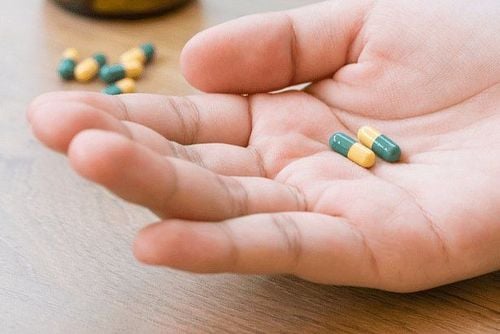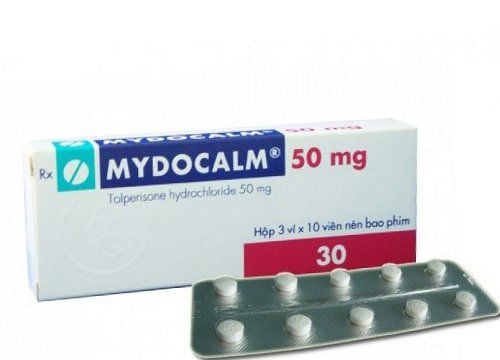This is an automatically translated article.
The generic name Fexmid is CYCLOBENZAPRINE. Fexmid is prepared in the form of 7.5 mg round, white tablets with WATSON 3330 imprint. The drug is used orally to treat muscle spasms.1. Uses of the drug Fexmid
CYCLOBENZAPRINE has a short-term effect on the treatment of muscle spasms. Fexmid is often used in combination with rest and physical therapy. The drug Fexmid works will help relax the muscles, avoiding muscle fatigue.2. How to use Fexmid?
Take this medication by mouth, or with food, as directed by your healthcare provider. Do not increase the dose with Fexmid on your own, use it more often or for longer than indicated. Your condition will not improve any faster and there is an increased risk of dangerous side effects.The dose of Fexmid should be based on your medical condition and response to treatment. It should only be used short-term (for 3 weeks or less) or unless directed by a doctor. Tell your doctor if your condition persists for 2 to 3 weeks or more or if it worsens.
3. Side effects
Side effects such as drowsiness, dizziness, dry mouth, constipation or fatigue may occur when using the drug. If any of these effects persist or get worse, tell your doctor or pharmacist right away.Your doctor has prescribed this medicine based on the judgment that the benefit to you is greater than the risk of possible side effects. Many people use this drug and do not report serious side effects.
Tell your doctor right away if you have any serious side effects while using this medicine, including irregular fast heartbeat, mental changes (such as confusion, hallucinations), difficulty urinating .
Very serious allergic reactions to this medicine are very rare. However, get medical help right away if you experience any symptoms of a serious allergic reaction, including hives, itching, swelling (especially of the face, tongue, or throat) dizziness or trouble breathing serious.
This is not a complete list of possible side effects when taking Fexmid. If you notice other effects not listed above, contact your doctor or pharmacist.

Buồn ngủ, chóng mặt là tác dụng không mong muốn khi dùng thuốc Fexmid
4. Precautions
Before taking medicine, tell your doctor or pharmacist if you are allergic to the drug or its ingredients, or if you have any other allergies. This medicine contains many ingredients, which can cause allergic reactions or other problems that are dangerous. Talk to your doctor or pharmacist for more information.Before using this medicine, tell your doctor or pharmacist your medical history, especially of liver disease, overactive thyroid gland (hyperthyroidism), heart problems (such as irregular heartbeat, left heart block, heart failure, recent myocardial infarction), difficulty urinating, glaucoma.
Using this medicine may make you dizzy or drowsy. It is strictly forbidden to drive, use machines, or do anything that requires alertness until you can be sure it is safe to do so. Talk to your doctor if you are using drugs such as marijuana or alcohol.
Before any surgery, tell your doctor or dentist about the medicinal products you use (including prescription drugs, over-the-counter medicines, herbal products).
Older adults may be more sensitive to the side effects of this medicine, especially drowsiness, confusion, constipation, or trouble urinating. Drowsiness and confusion increase the risk of falls.
During pregnancy, the drug should be used only when absolutely necessary. Discuss the risks and benefits of taking it with your doctor. The use of the drug can cause some of the medicine to pass into the milk, making it dangerous for the baby to use this milk. Consult your doctor before breast-feeding.
5. Interaction
Drug interactions can change the way medications work and increase the risk of serious side effects.Keep a list of all the medicines you take (including prescription drugs, over-the-counter medicines and herbal products), and tell your doctor or pharmacist. Do not start using it, stop using it, or change the dose of any medicine without your doctor's approval.
Some products that may interact with Fexmid include antidepressants (such as amitriptyline, imipramine).
Tell your doctor or pharmacist that you are taking other medicines that cause drowsiness such as opioid pain relievers or cough suppressants, alcohol, cannabis sleeping or anxiety medications, other muscle relaxants, or antihistamines histamine .
Check the information on all your medicines as they may contain ingredients that make you sleepy. Ask your doctor or pharmacist about using these medicinal products safely.

Không nên tự ý thay đổi liều lượng thuốc Fexmid
6. Notes on drug use
Do not share medication with others. Medicines are used to treat your current problem. Do not self-medicate when you have other problems.Store the medicine at room temperature, away from light or moisture, where high humidity shines directly on the medicine. Do not allow the medicine to freeze. Keep out of reach of children and pets around you. Do not throw medicine down the toilet or down the drain. Dispose of drugs in accordance with regulations upon expiry of their shelf life to protect the environment.
Please dial HOTLINE for more information or register for an appointment HERE. Download MyVinmec app to make appointments faster and to manage your bookings easily.
Reference source: webmd.com



